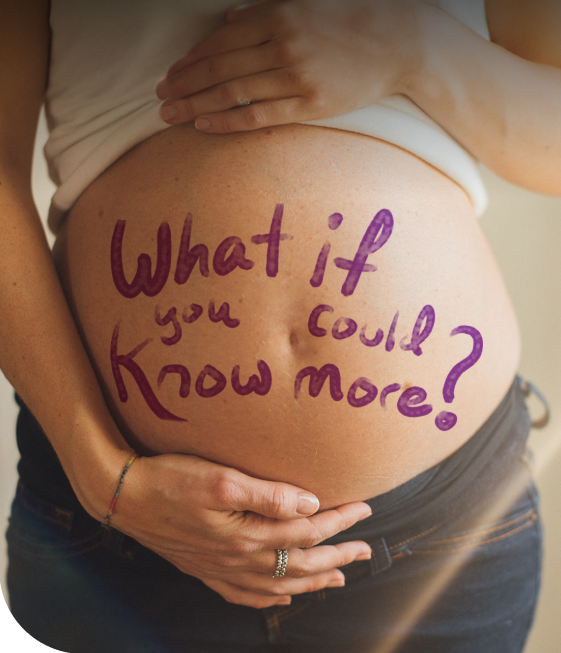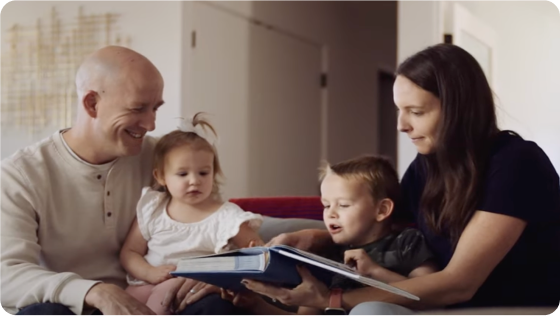![]()
![]()
With prenatal genetic screening, you can.
When it comes to what’s best for your baby, it’s natural to want to know…everything. From getting a peek into your gene pool, to knowing the sex of your child, to receiving insights into your baby’s development, prenatal genetic screening—in the form of a simple blood test–can tell you so much before your baby is even born.
What can prenatal screening tell me about my baby?
Will my baby be healthy?
It’s a question every parent-to-be wonders. Reproductive genetic screenings can help find those babies and pregnancies affected by a genetic condition. While the vast majority of screens receive results that are reassuring, around one percent of babies do have a genetic condition, and getting screened can give insight into that high risk.1
What is prenatal genetic screening, and which screens are right for me?
Your genes are the building blocks of your body. Genetic screening examines the genes and chromosomes inside you and your unborn baby to give you important insights about your baby’s development. Several different types of screens are offered before and during pregnancy. These include carrier screens, cell-free DNA screens and now, you can get a peek into your baby’s gender at only six weeks!
Genetic screens are like an ultrasound of your DNA
Cell-free DNA
screening
Determines baby’s risk of having specific chromosome conditions
Carrier screening
Determines baby’s risk of having specific inherited conditions passed down from the parents
What do I do if a higher chance for a condition is found?
In the rare instance of a high-risk result, take a breath. Screening allows you precious time to pursue diagnostic testing, consult specialists and counselors, find the best-equipped medical facilities, and meet parents who have walked in your (and your baby’s) shoes.
Myths about prenatal screening
MYTH
Prenatal screening is scary and stressful.

TRUTH
Most families find screening reassuring. If a possible risk is identified, screening gives you time to learn more about your baby’s needs from the start.

MYTH
Why do I need to screen? I wouldn’t do anything differently.

TRUTH
In the rare instance that results show a high risk for a condition, knowing gives you time to look into additional testing, connect with specialists, find the best medical facility, and more.

MYTH
It’s not needed. Screening is just for families with a history of rare disease.

TRUTH
Even if you’re unaware of inherited genetic conditions, any baby could be born with a chromosome or genetic condition. Some people are carriers and don’t know it.

![]()
Up to 9 in 10
pregnant women want prenatal screening once they learn how it helps.2

What screens are useful while I'm...
How testing can help guide pregnancy
See real stories of how genetic screening helped families plan ahead and prepare for their pregnancy and beyond.
REFERENCES
- Hogan GJ, et al. Validation of an expanded carrier screen that optimizes sensitivity via full-exon sequencing and panel-wide copy number variant identification. Clin. Chem. 2018;64(7):1063-1073. doi:10.1373/clinchem.2018.286823.
- 2024 Myriad Genetics Health Survey.







